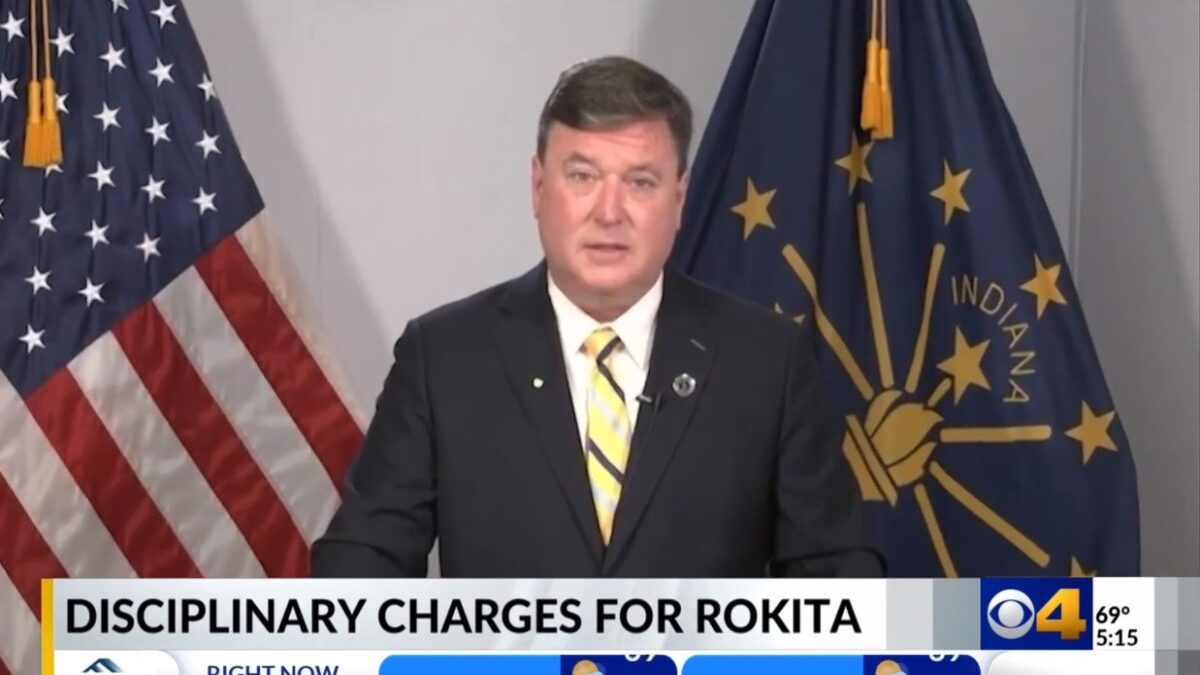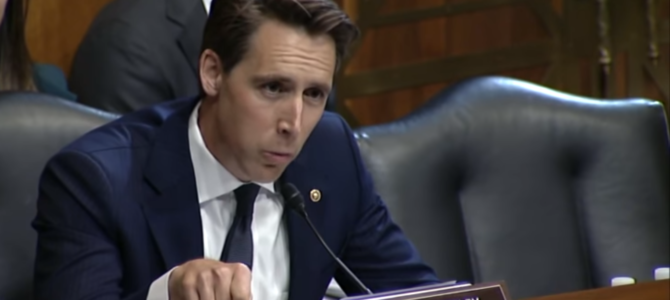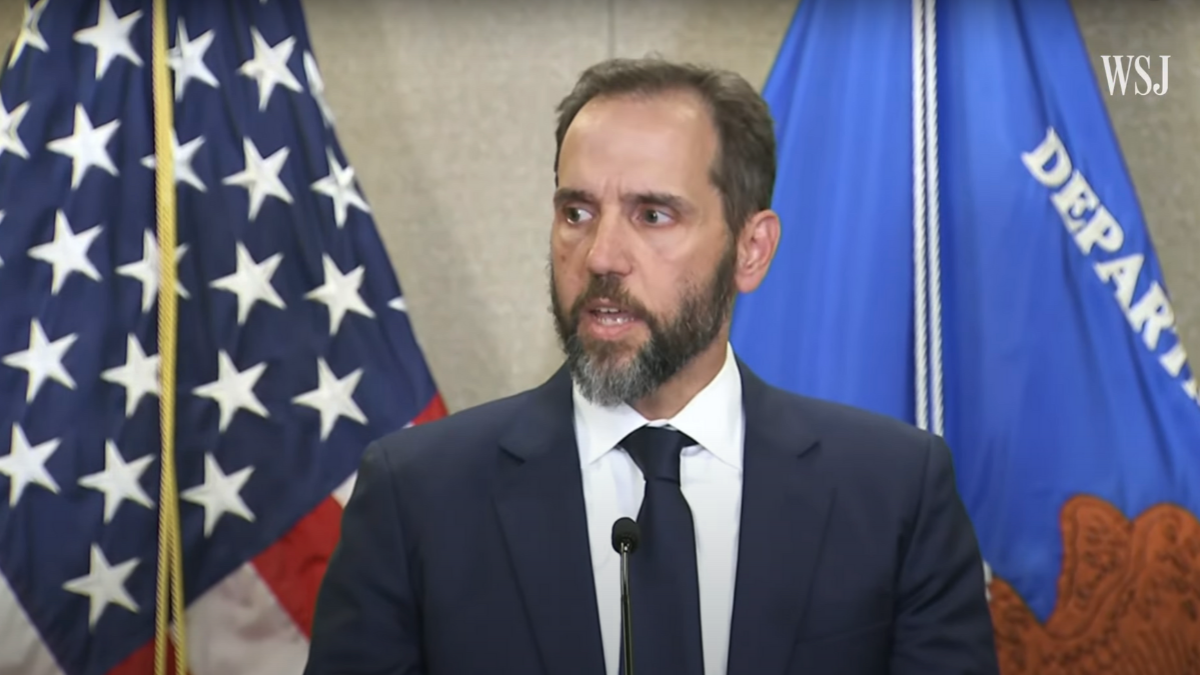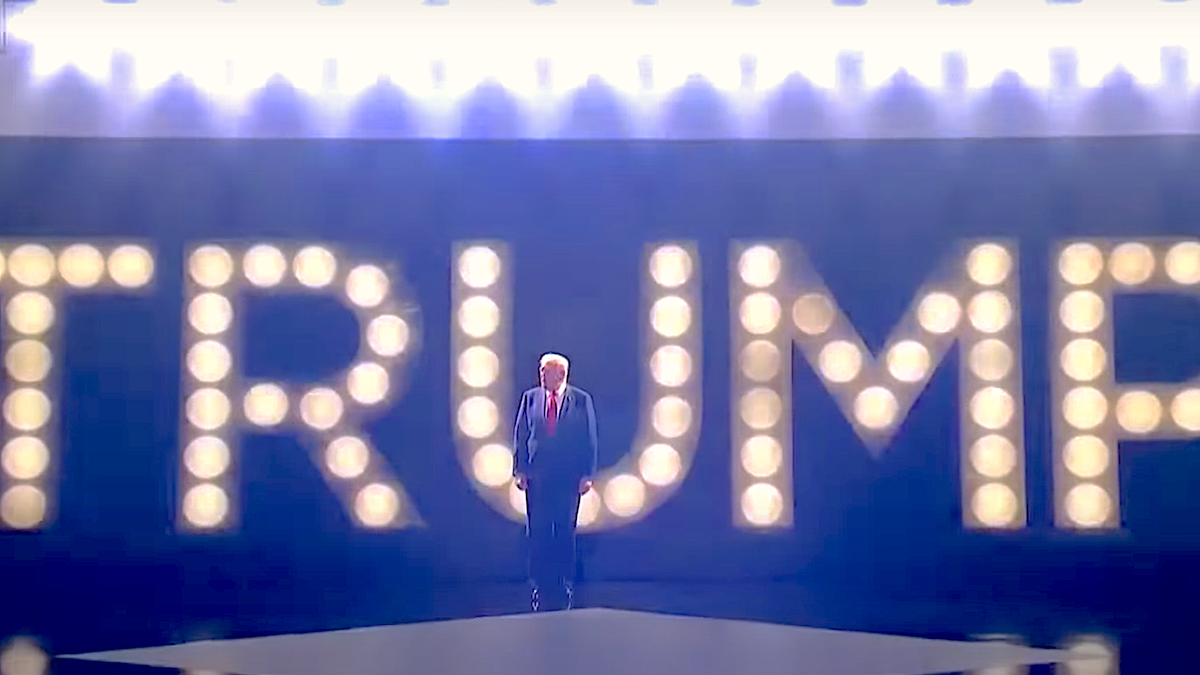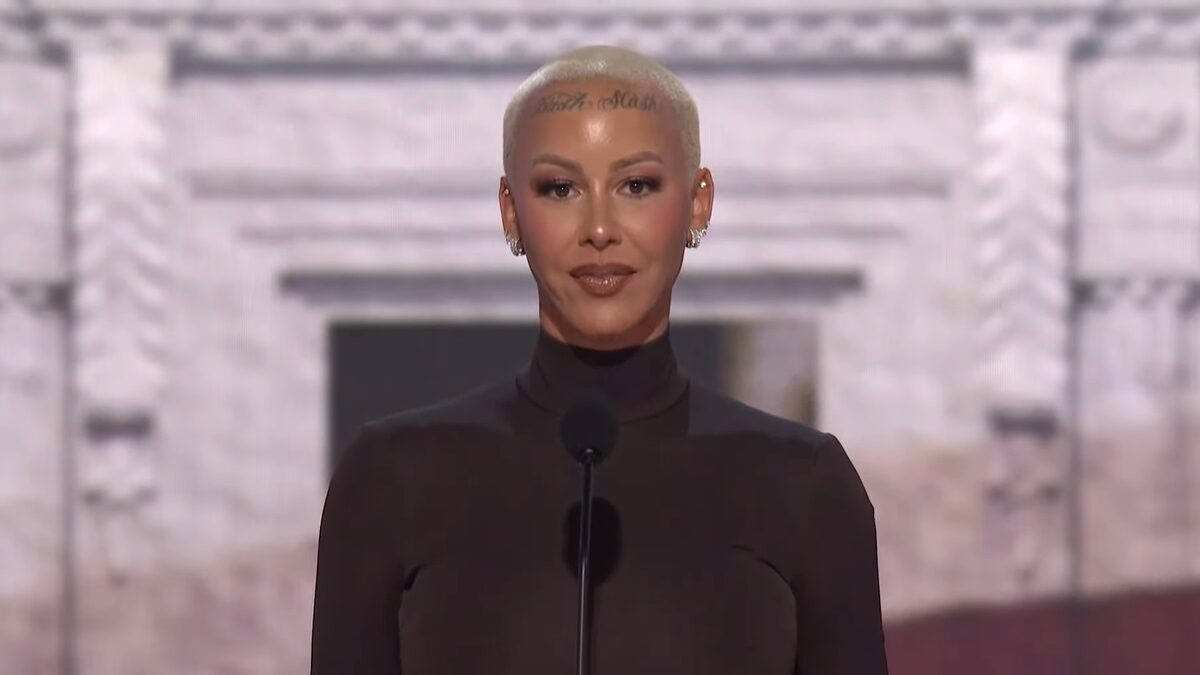Half of Republican state attorneys general and many of their immediate predecessors have faced ethics challenges to their law licenses since 2022, according to Federalist research. The majority were filed by The 65 Project in retaliation for joining the 2020 constitutional litigation Texas v. Pennsylvania, which demanded that Georgia, Michigan, Pennsylvania, and Wisconsin follow their election laws.
Texas Attorney General Ken Paxton is battling multiple politicized ethics charges two years after those filed over Texas v. Pennsylvania. The elected attorneys general of Montana and Indiana, who weren’t in office to join Texas v. Pennsylvania, now also face ethics charges not for gross misconduct but for disagreeing with the state supreme court and accurately describing an abortionist, respectively.
“The goal is to chill me,” said Indiana Attorney General Todd Rokita in a phone interview about ethics complaints against his law license. “The goal is to shut me up.”
These attorneys general have been protecting millions of Americans from unconstitutional Biden administration attempts to change laws without Congress, a practice Barack Obama dramatically expanded. They have supported the Remain in Mexico policy impeding mass illegal migration, defended landowners from federal seizure of their property, fought a requirement for transgender policies to serve school lunches, sued to keep leftist politics out of investment, and sued for records about the Biden administration designating school board protesters as terrorists.
In December, police showed up at Ohio Attorney General Dave Yost’s home after a false report of a shooting there, known as swatting. Swatting can get targets killed by police.
“The role of the attorney general has really become prominent because, where Congress is acting as theater — where nothing ever gets done, they write a letter, they get on Fox News, they do this and that, they talk a lot — but it’s the attorneys general moving the needle,” Rokita said. Before winning statewide election as AG, Rokita was a member of the House of Representatives.
On Thursday, the Indiana Supreme Court took the unusual step of releasing its final agreement in Rokita’s fall 2023 discipline proceedings. Rokita agreed to the “extraordinary” disclosure and supports making all typically confidential disciplinary proceedings public, his lawyer Jim Ammeen told The Federalist, but “It is bad public policy for the disciplinary commission to go back after a case is closed and ask the Supreme Court to publish confidential documents. It can become the basis of new legal proceedings against the attorney and it can cause loss of confidence in the process.”
Rokita’s saga is a case study in the emerging use of attorney discipline as a political weapon, which is increasingly being used against not only high-profile lawyers such as attorneys general and former President Donald Trump’s counsel but also against lawyers with no national profile who merely oppose Democrats in court.
Ethics Rules as a Political Weapon
Indiana Supreme Court Disciplinary Commission Executive Director Adrienne Meiring used her discretion to publicly go after Rokita’s law license in September. His entire alleged offense was telling Fox News an abortionist who killed the baby inside a 10-year-old rape victim is “an abortion activist acting as a doctor — with a history of failing to report.” This, the commission concluded, violated state ethics guidelines by constituting a “substantial likelihood of materially prejudicing an adjudicative proceeding” against the abortionist.
Multiple attorneys told The Federalist the complaint against Rokita targeted far lesser offenses than the commission usually pursues. Ethics charges typically concern grave offenses such as attorneys misusing client funds or judges systematically failing to release prisoners on time.
In 2023, Indiana’s commission punished attorneys 15 times for failing to correspond with clients and attend hearings, three times for felony convictions, twice for owning child pornography, and once each for sexual advances on a client, injuring a person while drunk driving, a misdemeanor conviction, taking client funds, and knowingly making false statements to courts. Rokita was the only Indiana lawyer disciplined solely for speech that year.
Ignored Exceptions to ‘Speak No Evil’ Rules
In the Indiana Bar Association journal, Meiring has noted two exceptions to state ethics constraints: Indiana lawyers can publicly counteract negative publicity and note information that is already public. Another special exception allows prosecutors to speak negatively about a defendant “if the information is necessary to inform the public about the prosecutor’s actions,” Meiring writes.
Rokita’s actions fit these exceptions: As an elected official who clearly fits the National Bar Association’s definition of “prosecutor,” he’s entitled to tell Hoosiers why he used their resources to investigate an abortionist. Court documents in abortionist Caitlin Bernard’s suit against Rokita establish a massive amount of “negative publicity” about Indiana allowing such a brutal and inhumane response to child abuse after President Joe Biden publicized Bernard’s disclosure of her 2022 abortion on the 10-year-old.
In 2018, Indiana Right to Life publicized state records indicating Bernard failed to report underage abortions in Indiana, four years before Rokita’s remarks. It’s also definitionally accurate that any abortionist is an “abortion activist acting as a doctor”: Bernard disclosed to The New York Times a coat hanger tattoo on her foot.
The ‘Race and Gender’ Inquisitor
The disciplinary commission executive director also runs the vetting process that selects the judicial nominees from which Indiana’s governor picks. The justices Meiring’s position vets adjudicate any challenges their vetter brings against the licenses of Indiana’s approximately 16,000 lawyers. That means this unelected position wields great yet hidden power over the entire legal profession and court system in Indiana.
Previously, Meiring was staff attorney for the Indiana Supreme Court’s Commission on Race and Gender Fairness, created in 1999. A journal article says that this commission determined “equality” meant women must be deliberately promoted to “the top echelons of the legal profession.” That means selecting women on the basis of their sex, a cornerstone of unconstitutional civil rights policies. “Gender” law is typically rabidly pro-abortion.
Meiring’s November 2023 article, “The Impact of Bias,” is a recommended resource on the Indiana Bar Association’s diversity, equity, and inclusion resources page. In that article, she chastises a Maryland court for using literary analogies in a case involving two black people, implying it’s racist to say anything negative about any black people. Meiring also promotes the empirically invalid concept of “implicit bias,” writing: “both explicit and implicit bias negatively impact the judicial process, litigant perceptions, and public confidence.”
She also says legal ethics bodies, like the one she runs, should consider whether to punish judges and lawyers for even accidentally communicating what a third party might take offense at as “bias,” questioning whether “a judge’s seemingly benign comments and references” should merit punishments.
Leftist Bias Isn’t Bias, You See
Meiring also praised Indiana’s Madison County for implementing “mandatory implicit bias training for all judges and court employees” in the wake of the George Floyd riots. Meiring also described how she used her public position to facilitate Indiana judges’ appearances at “equity” forums in the wake of the nationwide riots that caused an estimated $2 billion in property damage and killed several Americans. In the article, she highlights new Indiana ethics provisions that — cautiously — allow judge participation in “protests.”
So while Indiana judges can publicly support crime-fomenting political causes, Rokita can’t mildly criticize a person who professionally dismembers children inside their mothers’ wombs.
Meiring’s disciplinary commission requested the unusual disclosure of his discipline agreement because, in Rokita’s words, he “wasn’t sorry enough.” After he agreed not to contest the discipline or alter his admission of guilt to “save a lot of taxpayer money and distraction,” Rokita maintained in a press statement his sanctioned statements were “truthful” and “factual.”
In December, the commission complained Rokita’s press statement — rather than their punishment of a public official’s speech to protect an abortionist — “caused damage to the public’s perception of the integrity and justness of the attorney discipline system.” So Thursday the supreme court vetted by the discipline commission’s executive director rebuked Rokita again.
Republican AGs Facing Ethics Complaints Since 2020
- Former U.S. Attorney General Bill Barr: For telling the public what he read in the special counsel report
- Alabama AG Steven Marshall: For participating in constitutional litigation against Michigan, Pennsylvania, and Wisconsin’s illegally conducted elections in 2020
- Arkansas former AG Leslie Rutledge: For participating in constitutional litigation against Michigan, Pennsylvania, and Wisconsin’s illegally conducted elections in 2020
- Florida AG Ashley Moody: For participating in constitutional litigation against Michigan, Pennsylvania, and Wisconsin’s illegally conducted elections in 2020
- Idaho AG Raul Labrador: For firing an attorney who disagreed with his policy positions
- Indiana AG Todd Rokita: For investigating an abortionist who admitted to performing an abortion on a 10-year-old child
- Former Indiana AG Curtis Hill: For participating in constitutional litigation against Michigan, Pennsylvania, and Wisconsin’s illegally conducted elections in 2020
- Kansas AG Kris Kobach: For not following procedural guidelines to oversee his staff
- Kansas former AG Derek Schmidt: For pursuing complaints about election integrity in 2020
- Kentucky AG Daniel Cameron: For investigating his governor’s purchase of a home from a campaign donor while campaigning for governor
- Louisiana former AG Jeff Landry: For participating in constitutional litigation against Michigan, Pennsylvania, and Wisconsin’s illegally conducted elections in 2020
- Mississippi AG Lynn Fitch: For participating in constitutional litigation in 2020 against Wisconsin, Pennsylvania, and Michigan’s illegally conducted elections
- Former Missouri AG Eric Schmitt (now a U.S. senator): For participating in constitutional litigation against Michigan, Pennsylvania, and Wisconsin’s illegally conducted elections in 2020
- Montana AG Austin Knudsen: For disagreeing with the state Supreme Court
- Montana former AG Timothy Fox: For participating in constitutional litigation against Michigan, Pennsylvania, and Wisconsin’s illegally conducted elections in 2020
- Nebraska former AG Doug Peterson: For pursuing complaints about election integrity in 2020
- New Hampshire AG John Formella: For saying a truck driver was guilty after a jury found otherwise
- Oklahoma former AG Mike Hunter: For participating in constitutional litigation against Michigan, Pennsylvania, and Wisconsin’s illegally conducted elections in 2020
- South Carolina AG Alan Wilson: For participating in constitutional litigation against Michigan, Pennsylvania, and Wisconsin’s illegally conducted elections in 2020
- Texas AG Ken Paxton: For leading constitutional litigation against Michigan, Pennsylvania, and Wisconsin’s illegally conducted elections in 2020
- Former Tennessee AG Herbert Slatery: For participating in constitutional litigation against Michigan, Pennsylvania, and Wisconsin’s illegally conducted elections in 2020
- Utah AG Sean Reyes: For a friend-of-the-court brief complaining about the FBI raid on Donald Trump’s home
- West Virginia AG Patrick Morrisey: For participating in constitutional litigation against Michigan, Pennsylvania, and Wisconsin’s illegally conducted elections in 2020
